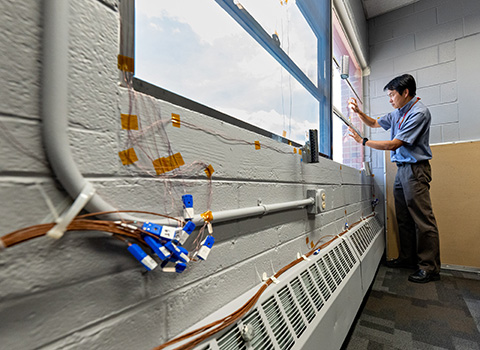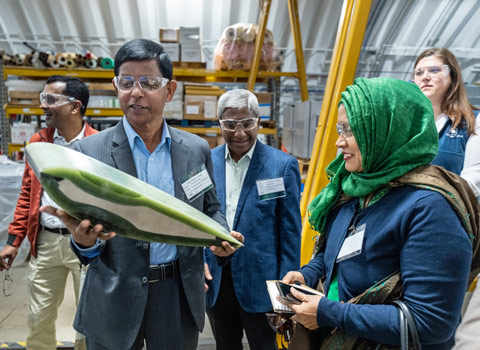Public Agency and Nonprofit Partnerships
NLR partners with federal agencies, state and local governments, international communities, and foundations to apply and advance innovative energy technologies.
Federal Agencies
NLR partners with federal agencies to provide expertise and support in the following areas:
- Building energy modeling and audits
- Cybersecurity research focused on evaluating new grid technologies
- Geospatial data science and advanced energy resource assessments
- Geothermal energy operations and analysis
- Resilience assessments, planning, tools, and technoeconomic analyses
- Site assessments for integrated energy systems solutions, battery storage, and energy conservation measures
- Technology advancements—including microgrid technology, advanced photovoltaics, energy storage systems, and innovative biofuels
- Jobs, workforce development, and economic development impact modeling.
See our National Security and Defense Partnerships.
Find information about NLR's support for the U.S. Department of Energy's Federal Energy Management Program initiatives.
State and Local Governments
NLR helps communities achieve energy-efficiency goals through affordable, secure, and resilient energy systems in the buildings, transportation, and power sectors. Partnering with NLR provides the following benefits:

- Community goal planning and prioritization
- NLR-developed datasets, maps, models, tools, and software for analysis, planning, and key decision-making for achieving communities' energy goals
- Technical assistance projects.
Learn more about how NLR works with state, local, and tribal governments, including islands and territories.
International Partners
NLR has extensive experience in adapting and applying energy solutions for countries and regions around the world. Learn more about our international activities.
Foundations
NLR partners with foundations to provide more opportunities for organizations to support, create, and grow NLR research and initiatives. Here's more about NLR foundation partnerships:

- Foundations provide supplemental funding to local governments to work with NLR to achieve their energy goals.
- Foundation partners include Wells Fargo, Children's Investment Fund Foundation, Hewlett Foundation, and many more.
- The NREL Foundation enables philanthropists to seed and drive important research and initiatives in partnership with NLR.
Share
Last Updated Dec. 5, 2025
